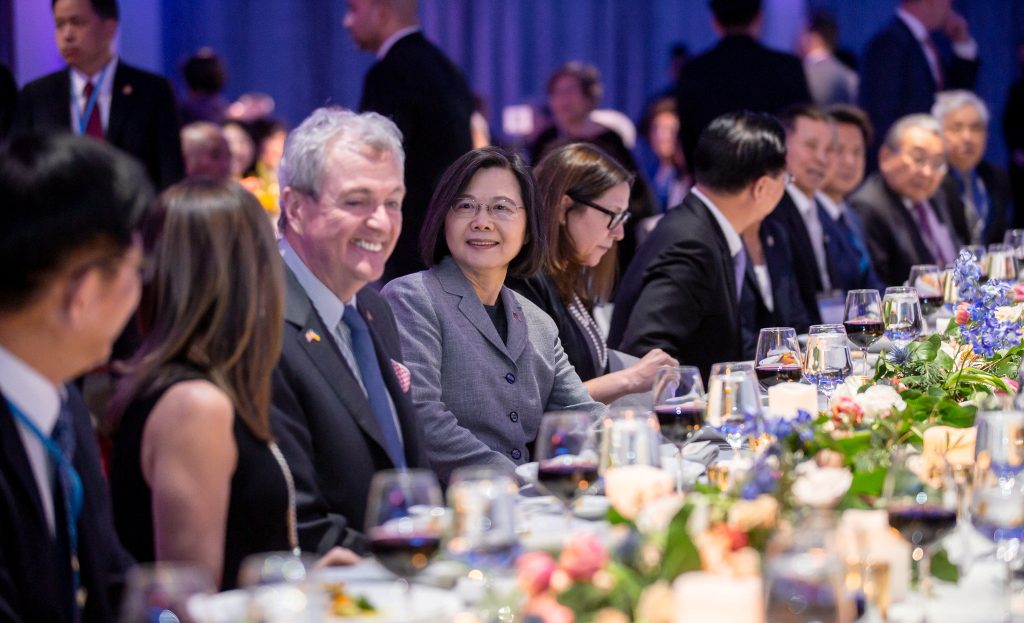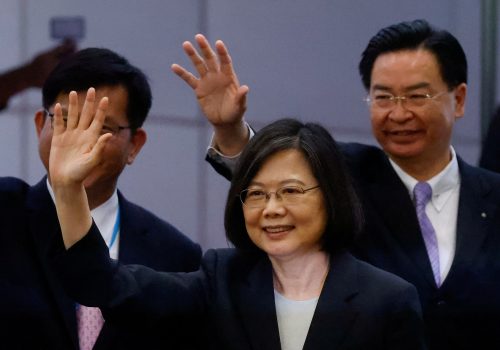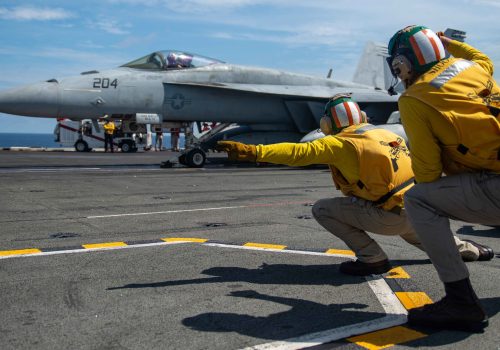China is yet again ramping up its saber-rattling over the travels of Taiwanese President Tsai Ing-wen, who is sandwiching stops in New York and Los Angeles around her ongoing trip to Central America. But that should not deter US leaders—including Speaker of the House Kevin McCarthy, who plans to meet with Tsai this week in Los Angeles—from staying the course and engaging with Taiwanese officials.
Unfortunately, the media coverage of her US stopovers is not helping, as it has been dominated by the rhetoric and dire threats emanating from Beijing. Just a quick sampling of top headlines about Tsai’s travels shows how prominent this theme has been in the Western media:
- Beijing warns of ‘severe impact’ on US-China relations as Taiwan’s leader lands in New York
- China threatens retaliation if Kevin McCarthy meets with Taiwan’s president
- Taiwan’s President Lands in the U.S. Amid Threats From China
At first glance, with this sort of framing, it is easy to see how this situation could be misinterpreted. To those who do not track US-Taiwan relations closely, Tsai’s transit of the United States may seem to be a rare activity, a high-stakes display of diplomatic brinksmanship amid heightened tensions, or even an intentional poke in the eye to Chinese Communist Party leader Xi Jinping.
This framing serves Beijing’s interest in seeking to isolate Taiwan and portray both Taipei and Washington as provocateurs. The truth is, as US State Department officials have repeatedly stated, such transits are not unusual. This is the seventh time for Tsai herself.
To be clear, the United States and its friends around the world should not ignore threats from Beijing, implicit or explicit. Responsible leaders should not be complacent about the threat that the People’s Republic of China (PRC) poses to the international order as a strategic competitor and as a potential military aggressor. They should have no illusions about Xi’s willingness to use coercion and force to achieve his goals and to change the status quo. Listening, watching, and carefully assessing Xi’s “red lines” is also an important endeavor that may help to prevent a miscalculation that could lead to the most devastating war in human history. However, no country in the world should allow the near-constant stream of threats and warnings emitting from Beijing to lead it to believe that actions that are reasonable, routine, and restrained are instead risky, worrisome, and escalatory.
The high-profile visit by then Speaker of the House Nancy Pelosi to Taiwan last August was a much more unusual occurrence than a president of Taiwan having meetings in the United States while in transit to another destination. In that case, the warnings and rhetoric beforehand were even more dire than today’s, including explicit threats of military action. In the end, Beijing only employed harsh rhetoric, modest economic coercion measures, and aggressive military exercises after the visit. In short, Beijing’s bark was worse than its bite. As experts have pointed out, the military activities in particular were also not so much a reaction “provoked” by the visit, but likely long-planned exercises that used Pelosi’s trip as a pretext and justification. Therefore, there is good reason to believe such activities would have happened sooner or later, regardless of her trip.
As the world considers how Beijing might react to Tsai meeting with McCarthy this week, it is important to keep that example in mind, rather than to exaggerate the risks. It is also important to keep in mind reports that McCarthy changed his own plans to meet Tsai in Taiwan in favor of meeting her in California. This would be enough of a concession to Beijing. To openly worry and fret about how Beijing would react to this meeting going forward—or worse yet, back away from such a meeting—is just playing into Beijing’s hands and encouraging more of the same threats. The United States has an obligation to set an example for its allies and partners that countries can weather the PRC reaction to such meetings and that such dire threats are more bluster than substance.
Before her departure, Tsai struck the appropriate note. “We are calm and confident, will neither yield nor provoke. Taiwan will firmly walk on the road of freedom and democracy and go into the world. Although this road is rough, Taiwan is not alone,” she said, according to Reuters.
Like Tsai herself, the leaders of the United States and its friends and allies around the world should remain calm, cool, and confident when it comes to meeting with Taipei’s officials at home or abroad. There is no reason to go out of the way to provoke Beijing with the timing, location, or optics of such visits. However, the United States should also not allow itself to be intimidated into avoiding such engagements, nor should it allow Beijing’s bluster to overshadow their legitimacy and importance.
Such engagement is an indispensable part of maintaining the status quo of a “robust unofficial relationship” between Washington and Taipei. Beijing’s efforts at intimidation should not be allowed to succeed in breeding hesitation to meet with Taipei’s officials, because such success will only breed more efforts to move the goalposts, undermine confidence in the US commitment to Taiwan, and isolate Taiwan from the international community.
Markus Garlauskas is the director of the Indo-Pacific Security Initiative in the Scowcroft Center for Strategy and Security and a former senior US government official, serving as both an intelligence officer and strategist.
Further reading
Thu, Mar 30, 2023
Experts react: Your guide to the Taiwanese president’s trip to the US and Central America
New Atlanticist By
President Tsai Ing-wen's trip comes as US tensions with China are nearing a boiling point, and Taiwan is hustling to hang on to its allies in Latin America.
Wed, Mar 15, 2023
Experts react: Honduras is establishing ties with China. What should Taiwan and the US do?
Experts react By
With the switch, Taiwan will only be formally recognized by thirteen countries. Our experts weigh in on what it means for Honduras, China, and the United States.
Fri, Feb 3, 2023
Is the US over-militarizing its China strategy?
New Atlanticist By Harlan Ullman
China lacks the capability to seize and occupy Taiwan with an amphibious invasion, but the US spends inordinate time and money preparing for one. It's time to rethink the strategy.
Image: Taiwan's President Tsai Ing-wen and New Jersey Governor Phil Murphy attend an event with members of the Taiwanese community, in New York, U.S., in this handout picture released March 30, 2023. Taiwan Presidential Office/Handout via REUTERS ATTENTION EDITORS - THIS IMAGE WAS PROVIDED BY A THIRD PARTY. NO RESALES. NO ARCHIVES.



